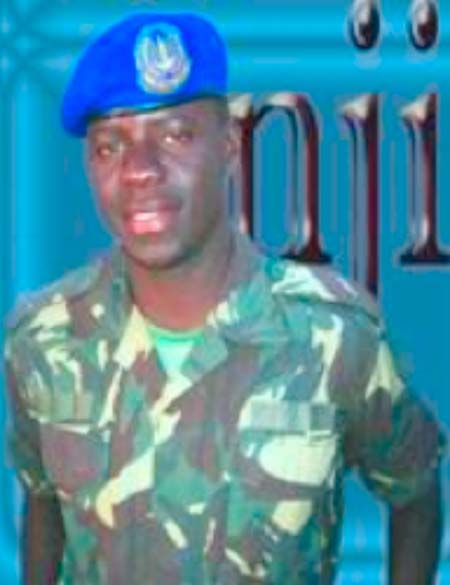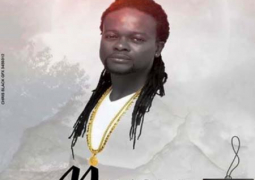
The Director of Public Prosecution (DPP) S.H. Barkun yesterday battled with defence counsel in the appeal case involving the December 30 attackers, who were convicted by the court martial, before a three-member panel of judges of The Gambia Court of Appeal led by the court’s president Justice M’bai along with Justice Sallah-Wadda and Justice O.A. Adogoke.
The appellants, Lt Sarjo Jarju, Captain Abdoulie Jobe, Buba Bojang, Lt Amadou Sowe, Lt Buba Sanneh, and Private Modou Njie were convicted by the court martial for their alleged involvement in the December 30 attacked on State House in Banjul.
When the case was called, DPP Barkun appeared for the state with A.M. Yusuph and M. Koita, whilst B.S. Touray appeared for the 1st appellant and counsel N. Alfred from the Legal Aid agency appeared for the 2nd, 3rd, 4th, 5th and 6th appellants.
DPP Barkun then said: “I have filed a notice of preliminary objection to the appeal dated and filed on 25 April 2016. I have been served with a motion filed by counsel B.S. Touray, N. Alfred and L.S. Camara, but the motion is not predicated on this appeal, because the parties are different from what we have on the notice of appeal dated April 2015. I am making an application for the motion of notice to be expunged out of the records of the court.”
In response, counsel for the 1st appellant, B.S Touray said: “I am only served here in court with the DPP’s notice of preliminary objection, and I crave the indulgence of the court for time to reply on it.
“I will also reply and since I can only come formally before the court, I intend to file a notice of preliminary objection against the one filed by the DPP on the grounds that the one filed by the state is incompetent,” counsel Touray added.
He said the DPP had also raised an attack against the motion filed by the appellants, and urged the court to expunge the motion from its records.
He added that the DPP having filed a formal notice of preliminary objection, he did not think the DPP could file an argument for now.
Counsel Touray further submitted that the practice of the Court of Appeal is that all arguments be filed formally.
Also making a submission, counsel for the 2nd, 3rd, 4th, 5th and 6th appellants, N. Alfred said: “I also wish to add that the notice of preliminary objection filed by the DPP was served on me this afternoon at 12pm.”
She said she was applying for time to reply on the preliminary objection, adding that with respect to the motion on notice filed by them, she wish to apply that she would need time to reply on the arguments formally.
“DPP ought to have come formally so that arguments can be reduced to writing, and I urged the court to order for arguments to be filed formally,” she said.
DPP again said the appellants’ counsel have misconceived his application on the motion, adding that the parties on the motion are different from the case they have at hand.
At that juncture, counsel B.S. Touray then rose and said the DPP was not arguing on points of law, instead he was giving facts before the court, which is The Gambia Court of Appeal and he did not think they should fight over that.
DPP then said parties are a matter of law and since the parties were different, this was not the appeal they were attending to.
He said the motion filed by counsel had different names hence different from the case they had at hand.
Counsel B.S. Touray again said DPP was raising a fresh objection on facts, and he did not think the court should count on it.
Justice M’bai then asked DPP to confine himself to his argument on points of law, and avoid going into facts.
Delivering his ruling on whether or not to expunge the motion on notice filed by the appellants from the record of the appeal, Justice M’bai said amendments in criminal proceedings could be done at any stage.
He, therefore, dismissed the DPP’s application.
DPP then said he wanted to apply for time to file an affidavit in opposition, and asked for 7 days.
Counsel B.S Touray then said the DPP’s notice on preliminary objection was incompetent because he had attached an affidavit to it, which was not allowed.
When DPP was asked by the court about his position on what counsel had said, the DPP said the law did not say that an affidavit could not be attached to a preliminary objection; despite the facts that it could serve as further grounds.
He said counsel did not cite any implication with regard to attaching an affidavit to the preliminary objection.
DPP further said the only thing the court could do was to disregard the affidavit, and if counsel could support his grounds without attaching an affidavit he could chose to do so without being penalised by the court.
Counsel B.S. Touray again said if attaching an affidavit to a preliminary objection was allowed, the practice would affect every legal practitioner and not only him.
Delivering ruling on that, Justice M’bai said preliminary objection could be made at any stage of the trial even orally, but the law does not allow an affidavit to be attached to it.
He, therefore, said the preliminary objection before the court was incompetent, and hereby struck out.
They were each granted days to file their briefs of arguments, and reply on points of law.
The case was then adjourned until 2 June 2016, for adoption of briefs.
It would be recalled that the four appellants together with two other convicts faced up to 14 charges, ranging from treason to security offences.
The five-member court martial panel comprising a president and four other members, who were senior officers from GAF, sat from 5 February to 30 March 2015, at the Officers` Training Centre, Fajara Barracks.
Lieutenant Colonel Sarjo Jarju was discharged on one count, but sentenced to 10-year imprisonment on one count, 20-year imprisonment on one count, life imprisonment on 3 counts and to death on one count.
Captain Amadou Sowe was sentenced to life imprisonment on two counts.
Lieutenant Buba Sanneh was sentenced to 10-year imprisonment on one count, 20-year imprisonment on one count, life imprisonment on 4 counts and to death on one count.
Private Modou Njie received life imprisonment on one count and to death on two counts.


